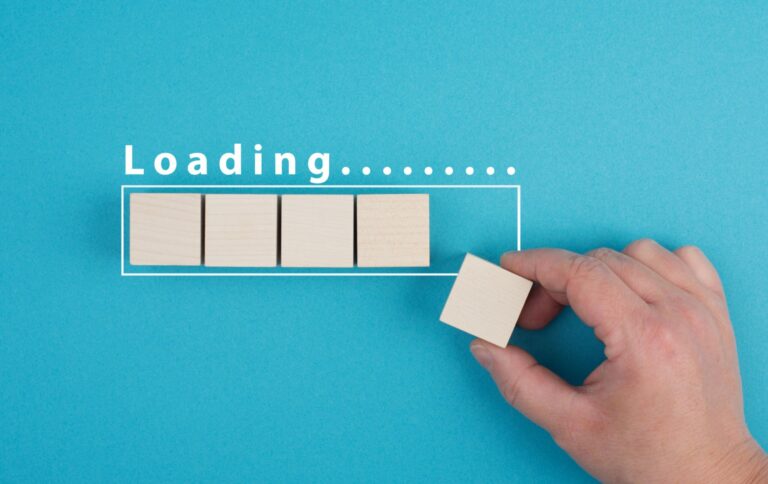How a Slow Website Can Hurt Your Small Business
A slow website can significantly harm your business in numerous ways. Whether you run an e-commerce site, a blog, or a portfolio website, the loading speed of your website can have a direct impact on your bottom line. In today’s fast-paced digital world, visitors expect websites to load quickly and efficiently, and a slow website can quickly lead to frustration, which can cause them to bounce and look for a faster alternative. In this post, we’ll discuss the various ways a slow website can hurt your business and what you can do about it.
Loss of Traffic
A slow website can cause visitors to quickly lose interest and navigate away. This results in a high bounce rate, which is the percentage of visitors who leave your site after viewing only one page. According to research, a 1-second delay in page load time can result in a 7% decrease in conversions, and a 2-second delay can result in a 15% decrease in customer satisfaction. A high bounce rate can negatively impact your search engine rankings and make it harder for potential customers to find your site, leading to a decrease in traffic and potential sales.
Decreased Conversion Rates
In addition to losing traffic, a slow website can also hurt your conversion rates. When a website takes too long to load, visitors may become frustrated and abandon their shopping carts, leaving items in their carts that they would have otherwise purchased. This not only results in lost sales, but it also affects your customer’s experience and their perception of your brand. A slow website can also make it difficult for visitors to find the information they need, leading to frustration and a lack of trust in your brand.
Poor User Experience
In today’s digital world, users expect a seamless and efficient online experience. A slow website can quickly lead to frustration and a negative perception of your brand. When visitors are faced with slow loading times, they may feel that your site is outdated and not worth their time, which can harm your reputation and brand image. A poor user experience can also discourage visitors from returning to your site, which can negatively impact your brand loyalty and repeat traffic.
Mobile Optimization
A slow website can also hurt your mobile optimization efforts. As more and more users access the internet from their mobile devices, it’s crucial that your website is optimized for mobile. A slow website can result in a poor mobile user experience, which can lead to a decrease in traffic and conversions. In addition, a slow mobile website can also negatively impact your search engine rankings, as search engines like Google now consider mobile optimization when ranking websites.
Decreased Engagement
A slow website can also hurt your engagement rates, as visitors are less likely to spend time on your site if it takes too long to load. This can result in lower page views, decreased time on site, and reduced engagement with your content. A slow website can also negatively impact your social media presence, as visitors are less likely to share or engage with your content if they had a poor experience on your site.
Increased Operating Costs
Finally, a slow website can also increase your operating costs. A slow website can result in increased hosting and infrastructure costs, as you may need to upgrade your hosting plan or server to support the increased traffic and demand. In addition, a slow website can also increase your customer support costs, as you may need to field more support requests from frustrated visitors.
Speeding Up a Slow Website
There are a number of factors that can be contributing to your slow website and the only way to identify the root cause and develop a solution is to perform a Comprehensive Web Assessment.

Our Comprehensive Web Assessment.will tell you where there are visible (and sometimes invisible) areas of concern based on CURRENT industry requirements. AND, we’ll explain, in everyday language, how to remedy the situation.
Not sure if you need a Full Audit? Take this short FREE, 5 minute self-assessment quiz instead to find out what’s not working as expected. Then we’ll guide you in the proper direction after that.



